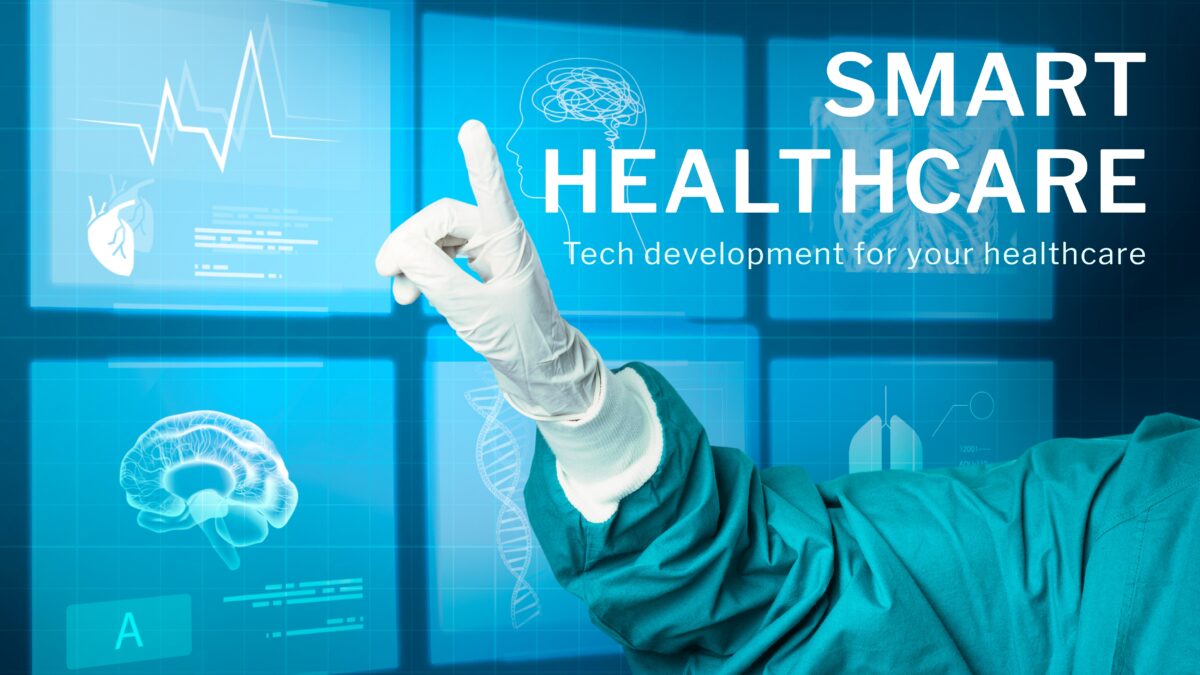Artificial Intelligence solutions have become a catchphrase in recent years, and their potential applications in healthcare have been the subject of much discussion. AI has the ability to completely change the healthcare sector, from patient outcomes to increased operational effectiveness. AI in healthcare can alter how healthcare is delivered, enhancing the overall quality of treatment and cutting healthcare expenses.
Investigating AI’s potential for use in healthcare and its advantages and potential for revolutionizing the sector is crucial in this context. This issue is of great relevance as healthcare systems throughout the globe face increasing pressure to enhance the quality of treatment while cutting costs, and AI has the ability to assist in achieving these goals.
Uses of AI in Healthcare:
Here is some ways AI is being used in healthcare:
1. Medical Imaging Analysis
AI can evaluate medical pictures such as X-rays, MRI scans, and CT scans to help diagnose ailments like cancer, heart disease, and Alzheimer’s disease.
For instance, AI can detect early-stage lung cancer in CT scans with an accuracy rate of over 90%.
2. Personalized Treatment
AI may assess patients’ medical records, symptoms, and genetic data to produce individualized treatment regimens. AI algorithms can help predict patient response to treatments and improve clinical decision-making.
For example, IBM Watson Oncology analyzes patient data to develop personalized cancer treatment plans.
3. Virtual Nursing Assistants
AI-powered virtual nursing assistants can monitor patients’ vital signs and provide real-time medical assistance. These assistants can also help manage medication and remind patients to take it on time.
For instance, Sensley’s virtual assistant, Molly, helps patients manage chronic diseases such as asthma and diabetes.
4. Clinical Trial Design
AI algorithms may analyze large data sets to find appropriate patient demographics for clinical trials and forecast patient outcomes.
For example, the startup, Owkin, uses AI to design clinical trials for cancer treatments.
5. Predictive Analytics
AI models can analyze patient data to identify patients at risk of developing diseases like diabetes or heart disease. This can help healthcare providers take preventive measures to reduce disease risk.
For instance, Google’s DeepMind Health developed an AI algorithm to predict acute kidney injury (AKI) up to 48 hours (about 2 days) before it occurs.
6. Healthcare Operations
AI can help healthcare providers improve operational efficiency by optimizing schedules, managing inventory, and automating administrative tasks.
For example, the healthcare provider, Mercy, uses AI to optimize operating room schedules and reduce wait times.
AI’s benefits in healthcare:
Artificial Intelligence (AI) has numerous benefits in healthcare that can lead to improved patient outcomes, enhanced clinical decision-making, and operational efficiency. Here are a few of the benefits of AI in healthcare:
1. Early Diagnosis and Treatment
AI can aid in the early detection and treatment of illnesses.
For example, AI can analyze medical images such as CT scans to detect early-stage lung cancer, increasing the chances of successful treatment and saving lives.
2. Improved Patient Outcomes
AI can help improve patient outcomes by providing personalized treatment plans based on the patient’s medical history, genomic data, and other factors. This can lead to better patient outcomes and reduced healthcare costs.
3. Predictive Analytics
AI can analyze patient data to predict the risk of developing certain diseases and conditions, such as heart disease and diabetes. This can help healthcare providers take preventive measures to reduce disease risk and improve patient outcomes.
4. Enhanced Clinical Decision-making
AI can assist healthcare practitioners make better clinical decisions by evaluating patient data and generating insights that might guide treatment strategies.
For example, AI can help predict patient treatment responses and identify potential drug interactions.
5. Increased Efficiency
AI may improve healthcare providers in streamlining their processes to improve patient flow and cut down on wait times.
For example, AI can help optimize the scheduling of operating rooms, minimize inventory waste, and automate administrative tasks.
6. Remote Patient Monitoring
AI-powered remote patient monitoring systems can continuously monitor patients, alerting healthcare providers to any changes in the patient’s condition. This can help healthcare providers provide timely interventions and prevent complications.
7. Improved Drug Development
AI can help improve drug development by predicting drug efficacy and identifying potential side effects. This can help reduce the time and cost of developing new drugs, leading to more efficient drug development.
Conclusion
Artificial Intelligence (AI) has immense potential to transform the healthcare industry, from improving patient outcomes to enhancing operational efficiency. AI can help with early diagnosis and treatment of diseases, provide personalized treatment plans, predict the risk of developing certain diseases, improve clinical decision-making, increase efficiency, and improve drug development. AI-powered remote patient monitoring systems can continuously monitor patients, alerting healthcare providers to any changes in the patient’s condition.
With the increasing availability of healthcare data and advances in AI technology, the potential for AI in healthcare is limitless. As AI advances, it is expected to become an increasingly important tool in healthcare, revolutionizing how healthcare is delivered and improving the overall quality of care.


